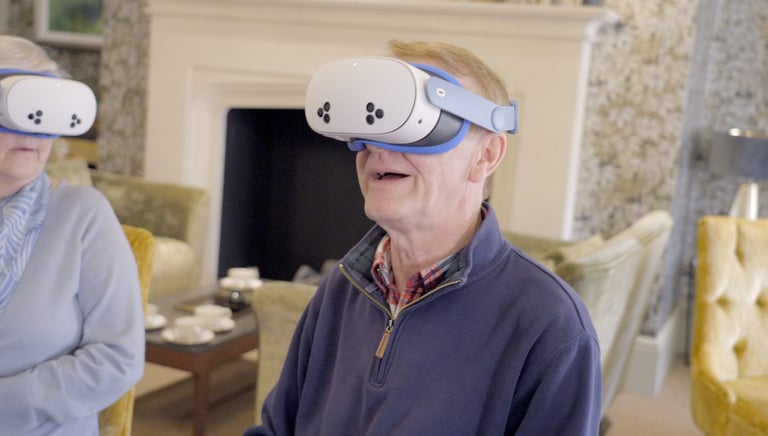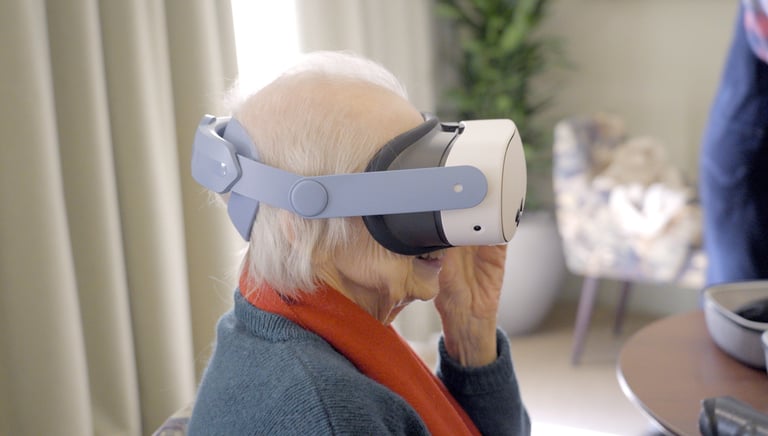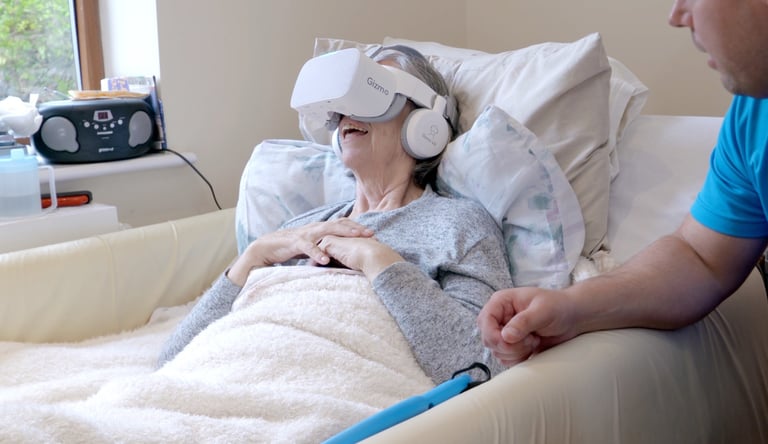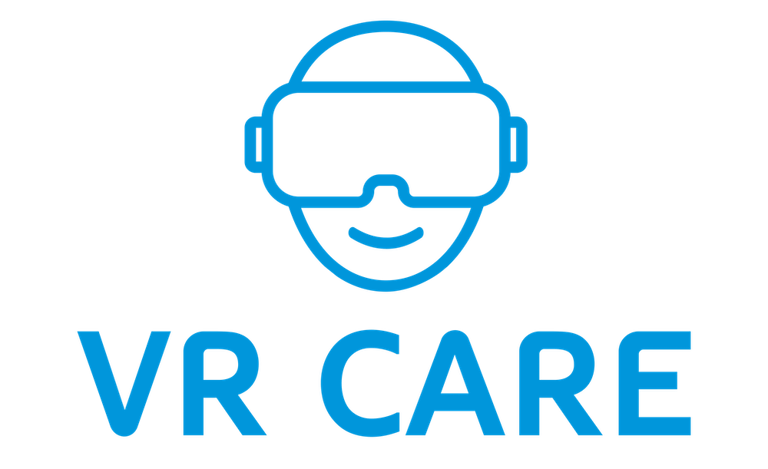VR DEMENTIA CARE
VR CARE has been successfully used with many people living with dementia. This is one of our most frequently asked questions; "Is VR safe for people living with dementia?". Before launching VR CARE, we Co-Created our solution with various care homes, nursing homes and dementia care services, to ensure that VR CARE is the right solution for people who are in care. We did surveys with care home managers, activity coordinators and family members of people in care, to ensure that VR CARE is set up for success. Our content library has been mostly influenced by feedback from care homes and especially residents, so we know our VR technology and content is ideal for care providers.
VR Group Activity


VR CARE is a great group activity if multiple VR packages are rented, allowing residents to have shared experiences.




1-2-1 VR Activity
Allow VR CARE content to help the people you support to engage in cognitive stimulation and share their stories.
VR CARE is easily transported around the care home, lightweight in a protective case and a carry bag provided.
Residents Rooms
Benefits of using VR with people living with dementia
1: Reminiscence and Memory Stimulation
VR can immerse residents in familiar environments or past experiences (e.g., childhood places, old music halls), which helps trigger memories, encourage storytelling, and support identity.
2: Reduction of Anxiety and Agitation
Calming virtual settings, such as peaceful gardens or beaches, can ease distress, provide comfort, and reduce episodes of agitation or restlessness common in dementia care.
3: Enhanced Communication and Social Interaction
VR experiences can spark conversations with caregivers and family members, helping residents express themselves and strengthening relationships.
4: Improved Mood and Emotional Well-being
Positive and enjoyable VR activities, like virtual travel or music experiences, can uplift mood, reduce feelings of isolation, and bring joy into daily care routines.
5: Safe Exploration and Engagement
Residents can safely “explore” the outside world without physical risks, promoting engagement and curiosity even for those with limited mobility or advanced stages of dementia.

